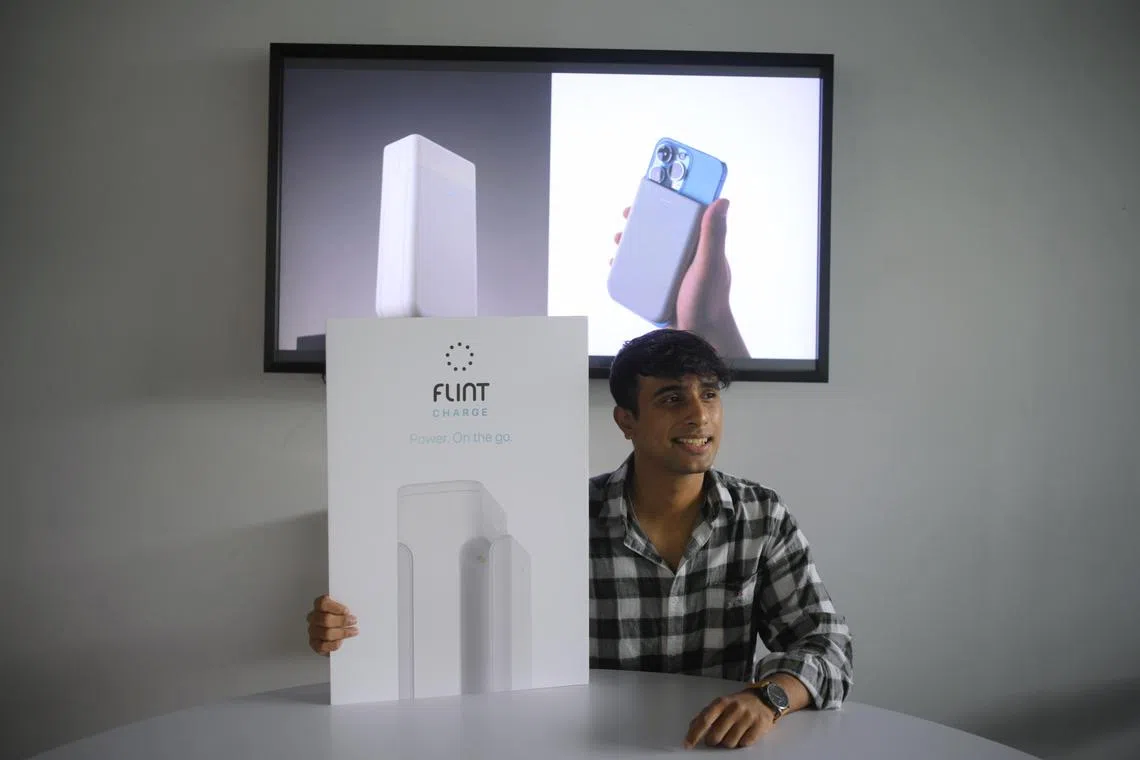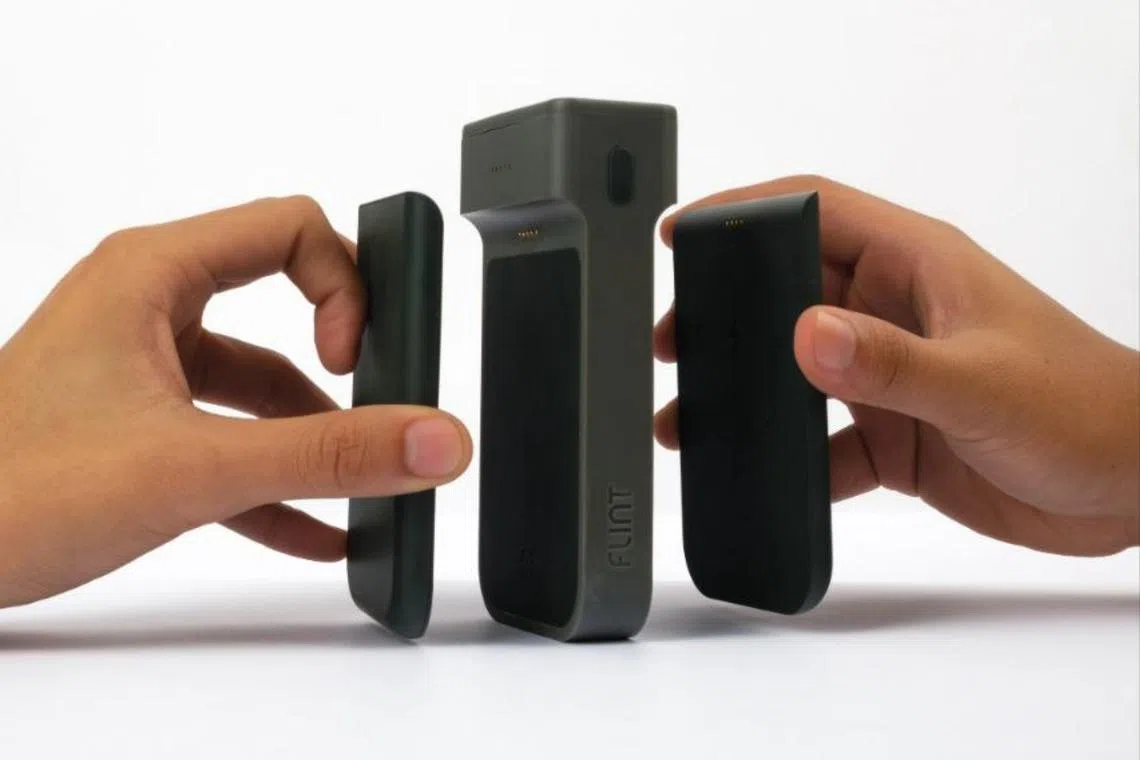NTU student in the running to develop electronics powered by greener paper batteries
Sign up now: Get ST's newsletters delivered to your inbox

Mr Carlo Charles is one of 40 innovators and start-ups recognised at the launch of a new initiative by NTU to support entrepreneurs.
ST PHOTO: MARK CHEONG
SINGAPORE - One of the world’s first sustainable portable chargers could well come out of Singapore.
Nanyang Technological University (NTU) mechanical engineering student Carlo Charles, 21, is among the innovators in the running to develop electronics powered by paper batteries that could serve as a safe and sustainable alternative to lithium-ion batteries.
His work has received acclaim, winning the grand prize in the Youth Action Challenge organised by the National Youth Council in February.
An avid inventor since childhood, the Singaporean is one of 40 innovators and start-ups recognised on Thursday at the launch of a new initiative by NTU to support entrepreneurs.
Concerns have grown over lithium-ion batteries, which are short in supply amid an electrical energy boom and which contribute to toxic waste.
While seen as a sustainable alternative, paper batteries generally have lower energy efficiency compared with lithium-ion cells.
But work is under way to reduce the gap, said Mr Charles, who is in the midst of commercialising the paper batteries. They also cost half as much to build as standard batteries, he added.
Unlike traditional batteries, paper batteries can be wrapped around objects instead of being fixed in a case, allowing manufacturers to get creative with its shape. They are also biodegradable, leak-proof and non-explosive, making them safer than standard batteries.
Researchers worldwide are racing to build paper batteries to reduce electronic waste. One of them is the Swiss Federal Laboratories for Materials Science and Technology, which is building a biodegradable paper battery.
The batteries used by Mr Charles are licensed from an NTU team that built biodegradable batteries in 2021, initially to power wearable devices. This battery is made by screen printing an ink layer of manganese on one side of a sheet of strengthened paper, and a layer of zinc and conductive carbon on the other.
Mr Charles, a second-year student, approached the scientists with a pitch to integrate the technology into his line of portable chargers he built in 2021 under his brand, Flint. The aim is to release a commercial product using paper batteries in the next few years and potentially other devices in the future.
Flint’s first line of wireless chargers, designed with two modular wireless charging slabs that can be stuck on a phone with magnets, was launched for crowdfunding on Indiegogo in 2021.

Flint’s first line of wireless chargers was designed with two modular wireless charging slabs.
PHOTO: FLINT
After receiving more than 700 orders in a month, Mr Charles put new orders on hold to focus on production. He said new orders will resume soon.
It marks his latest passion project. As a youngster, Mr Charles, who was born in the Philippines, developed an interest in technology that could help curb climate change after learning that many natural disasters there were linked to human causes.
He said: “I remember as a 14-year-old, I was searching why these things happen, and it turns out it’s down to climate change and much of it is down to humans. So I wanted to do something to help, and I found a passion in creating and building things.”
When he was 15, he built an air purifier out of household materials like plastic pipes and scrap electronics. His inventions grew more ambitious over the years – including a self-powered data buoy to collect and wirelessly transmit ocean data for coral reef observation, which won multiple awards.
The prize money from his projects are being channelled into his work on paper batteries, he said.
His work on electronics powered by paper batteries was among the innovations mentioned by NTU’s acting president and provost Ling San at the launch of the university’s Innovation and Entrepreneurship initiative.
It supports entrepreneurs in commercialising ideas through mentorship, training and networking with industry partners, and will also offer grants of up to $250,000.
Mr Charles, who will present his work to the United Nations in April as a finalist of the Global Talent Award, said: “I don’t plan to stop at paper batteries in a portable charger, but maybe in the next few years, phones can also be powered by paper batteries.”


